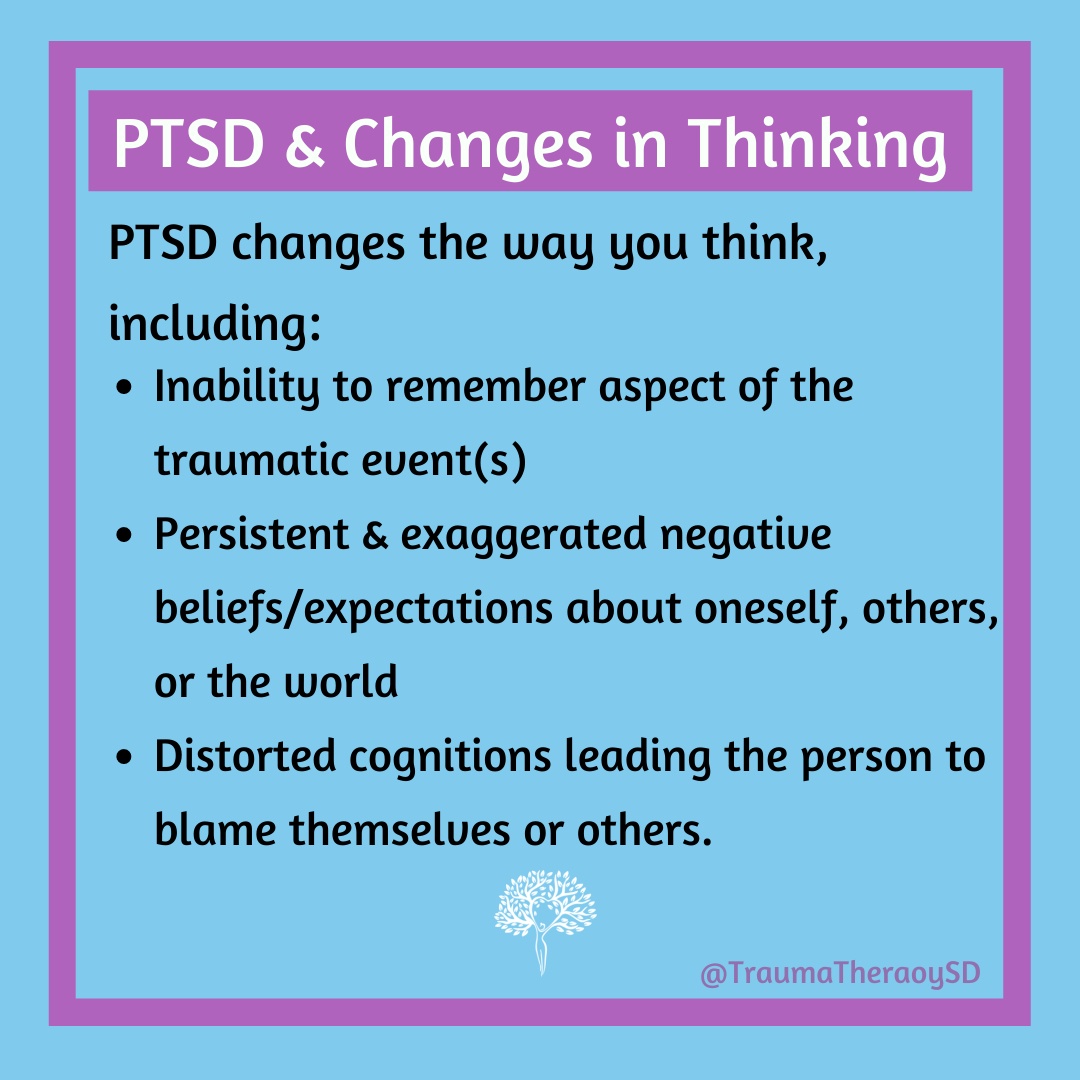PTSD & Cognition

As I noted earlier, according to the DSM 5, PTSD can develop if you go through a traumatic event, if you witness a traumatic, learning of a traumatic event happening to a close family member or friend, or repeated exposure to traumatic events (ex. first responders).
One symptom category includes negative changes a person’s cognitions associated with the traumatic event, including:
An inability to remember aspect(s) of the trauma. Often this is due to dissociative amnesia, and not head injury, or substance use. It is the brain’s way of protecting us from aspects of the trauma that are too painful or upsetting.
There may be persistent and exaggerated beliefs or expectations about themselves, others, or the world because of the trauma. Examples include “I am bad,” “No one can be trusted,” “The world isn’t safe,” and “I am permanently ruined.”
There may also be persistent, distorted cognitions about the cause or consequences of the trauma, which in turn lead the person to blame themselves or others. Examples are believing it is all their fault because they trusted the wrong person, or accepted the ride home, or had been drunk at the time. These are distorted cognitions because they do not place the blame on the shoulders of those who perpetrated the trauma.
Unfortunately, I often find that these negative changes in thinking are a result of both the trauma itself, and the way others react or respond to the trauma. Many survivors blame themselves, and then get this message from family, friends, the police, and the media.
That is why having support can be such a buffer against some of these negative outcomes, it is having others help you to remain balanced and realistic about the causes of these events.
These distorted ways of thinking can be changed, and often this change needs to happen in a therapy office, so the person has the space and the time and the support to change. The sooner after the traumatic event the person gets into therapy, the sooner the symptoms can be addressed.
This is also why it can be so hard for people who grew up with chronic trauma, abuse, and neglect to recognize that these are actually distorted ways of viewing themselves or the world, because they’ve grown up with that as truth in their mind and often don’t have a ‘before’ to reference how trauma has impacted them.










